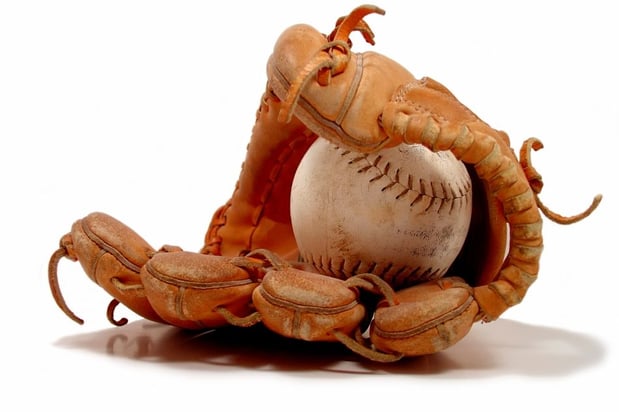How many chances should a self-identified drug addict get before his employer decides “enough is enough?”
That is the solemn question facing the Major League Baseball Players Association as they contemplate the fourth violation of MLBPA’s drug policy by Los Angeles Angels outfielder Josh Hamilton.
The saga of Josh Hamilton is not your typical sports drug case (if there is such a thing). Hamilton has not being accused of using PEDs (Performance Enhancing Drugs) or abusing HGH.
Rather, Josh Hamilton’s case is rare, if not unprecedented, for America’s favorite pastime. This gifted athlete and winner of the 2010 American League Most Valuable Player Award has openly admitted to a decade-long struggle with alcohol and drug addiction.
The Facts
The chronological review of Hamilton’s addiction is a rollercoaster:
- He was first suspended from baseball from February 2004 to June 2006 for cocaine and alcohol addiction.
- He was granted reinstatement in 2006 and agreed to undergo drug testing three times a week for the rest of his career.
- Then he suffered alcohol relapses in 2009 and again in 2012.
- In February 2014, when Hamilton realized his regular drug test was unavoidable and knew it would come out positive for alcohol and cocaine, he decided to self-report his relapse.
Now our worldwide sports-crazed population watches closely as Major League Baseball determines the fate of this baseball icon living his life at the mercy of addiction.
What Happens Next
There is no doubt that Hamilton will incur some type of suspension due to his alcohol and cocaine relapse. Currently, MLBPA penalties are covered under the JDA (Joint Drug Agreement). Penalties range from suspension for 15 games (first offense) to complete suspension for at least one year (fourth offense).
Reviewing sports history, America seems to be the land of second chances. Most recently, New York Yankee Alex Rodriguez received a 162 game suspension for his use of illegal drugs to enhance his performance. When Rodriguez came to the plate this week for the first time after serving his exiled season, the crowd seemed to welcome him back and forgive his sins and violations.
But Hamilton’s case is unique. There has been intense controversy as to whether or not his alcohol and cocaine violations should fit into the JDA’s schedule of penalties which were primarily designed for PED exploitation.
A four-person committee last week could not agree on a suspension for this ballplayer so now the case is being presented to an arbitrator. Ultimately, new Commissioner Rob Manfred has the final word on the penalty length.
The verdict will not only affect Hamilton’s playing status, but his wallet as well.
Just prior to the 2013 season, Hamilton and the Los Angeles Angels agreed to a 5-year contract worth $125 million. This year, he is due to be paid $25 million.
If the arbitrator decides that Hamilton should enter rehab, then Hamilton would be paid his full salary for 30 days and half his salary for the next 30 days ($6.2 million total). However, if the judgment is suspension without the option of rehabilitation therapy, he would not be paid this year at all.
The Controversy
The upcoming ruling by Major League Baseball is an emotionally charged, divisive topic being debated not just on sports talk radio but among the community of professionals who treat addicts and addicts themselves as well.
Sobriety is a difficult road. Studies examining alcohol addiction indicate that 50% to 90% of alcoholics experience at least one relapse in the four years following sobriety. Hamilton is a living example of this data. Many may wonder, does a married father of three daughters have any chance at long-term recovery after several stints in rehabilitation?
Healthcare experts believe that the last thing Hamilton or any addict needs is time away from daily structure. Research has shown that addicts with excess free time are more inclined to relapse than those with a pre-planned routine.
And then there is the issue of money. Hamilton possesses endless financial resources that can easily provide further temptation to buy and abuse alcohol and cocaine.
A Real Disease?
The prevailing understanding is that addiction is a disease; it is an illness that requires constant monitoring and motivation to stay clean. And if addiction is an illness that can (and should) be treated, then punishment is not the appropriate decision.
Yes, Hamilton did violate baseball’s policy and failed his required drug and alcohol tests. But Josh Hamilton appears to be the first and only baseball player to confess his slipup in advance of his scheduled drug test. He didn’t hide. In fact, his admission can be viewed as a plea for help.
Does the fact that he volunteered to disclose his relapse mean he should be dealt in a different way as those in the league who lied? Is allowing Hamilton his financial compensation for violating MLBPA’s regulations unjust?
The predominant opinion seems to be that the league should treat rather than discipline an addict who proactively reaches out for support. Regardless of the resolution, the outcome of this contentious case will set precedence for other players and other sports for years to come.
The next chapter of Josh Hamilton’s life should be resolved this month.
Will it be four strikes and he’s out? Or is it rather four strikes and we make the realization that addicts require more assistance than punishment?
Rehab may provide Hamilton, his family, his teammates and society an opportunity to save the life of a talented 33-year-old recurring addict whose future goes far beyond the baseball field of dreams.








